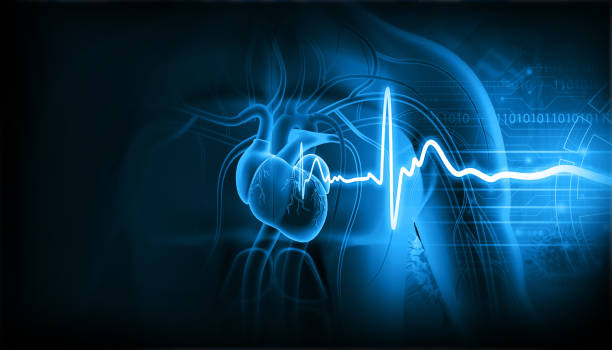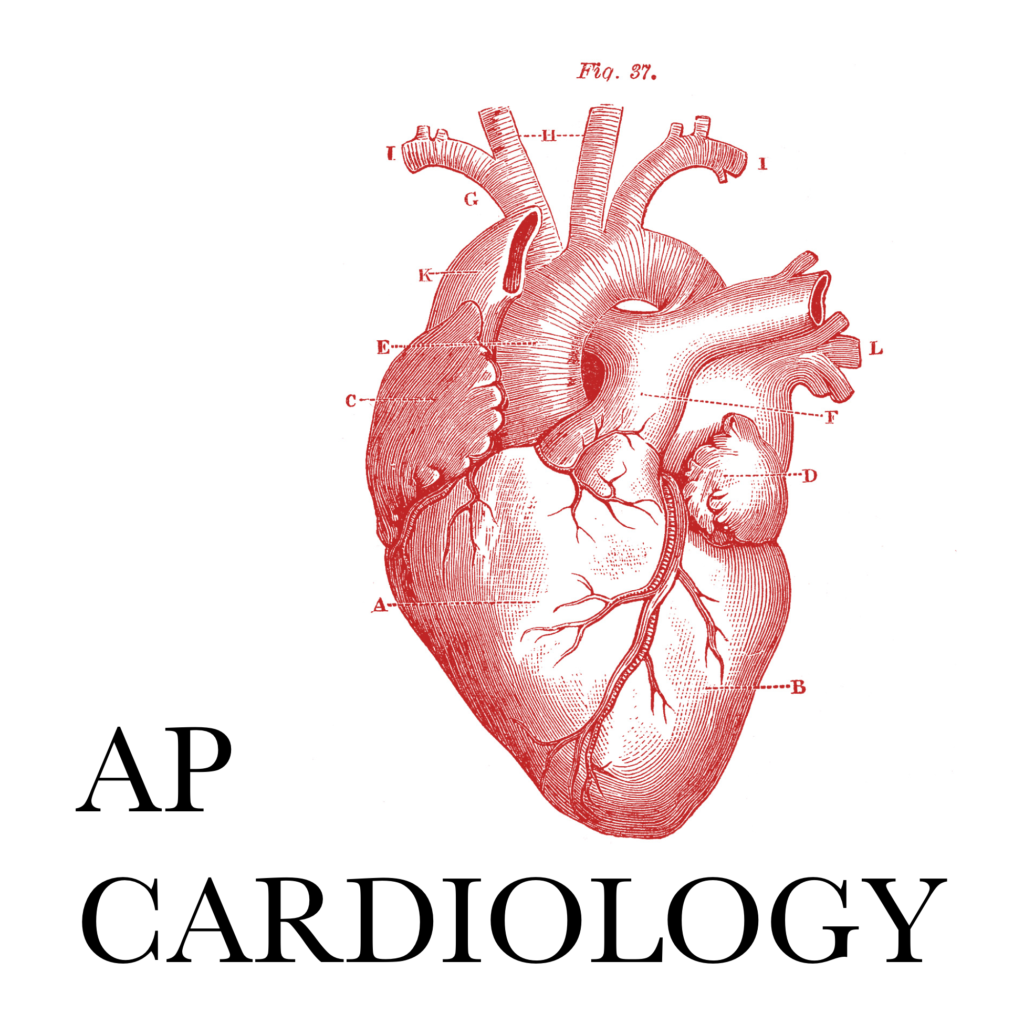Balancing stress and heart health: Cardiology care essentials
Balancing stress and heart health: Cardiology care essentials
Blog Article
Comprehending the Value of Cardiology in Modern Medical Care Services
Cardiology plays a critical role in modern-day health care, particularly as heart illness remains to be the leading root cause of death worldwide. Advancements in diagnostics and therapy have actually changed person care, making it possible for earlier treatments and improved outcomes. The change towards preventive cardiology encourages individuals to manage their wellness proactively. As technology proceeds to advance, the assimilation of cutting-edge options may additionally redefine cardiology's influence on public health and wellness, prompting a closer evaluation of arising patterns and their effects.
The Occurrence of Heart Problem and Its Effect on Public Health
Although heart illness continues to be the leading reason of fatality worldwide, its influence expands much beyond specific people to impact public health systems and economies. The high prevalence of cardiovascular disease puts a considerable strain on medical care resources, requiring increased financing for prevention, recovery, and treatment programs. Public health efforts should address threat variables such as excessive weight, smoking cigarettes, and sedentary lifestyles, which contribute substantially to the increasing occurrence of heart conditions.Moreover, the economic burden related to heart condition is tremendous, including not just direct clinical costs however likewise indirect expenses connected to shed performance and premature mortality. Areas deal with difficulties in handling these prices, typically resulting in differences in medical care gain access to and results. As the populace ages and lifestyle-related dangers continue to intensify, the necessity for effective cardiology interventions ends up being extremely important. Subsequently, resolving heart condition is not only an issue of private health and wellness but also a critical public health and wellness top priority.
Advancements in Heart Diagnostics and Imaging Techniques
Current innovations in cardiac diagnostics and imaging techniques have actually transformed the field of cardiology, enhancing the capacity to keep track of and identify heart problem. Methods such as cardiac MRI, CT angiography, and echocardiography have ended up being significantly innovative, supplying detailed pictures of cardiac frameworks and functions. These modalities permit for the very early recognition of problems like coronary artery disease, heart failure, and valvular disorders.Moreover, innovations in non-invasive diagnostics, such as wearable modern technology and remote monitoring tools, have empowered people and health care providers. These devices assist in real-time monitoring of heart rhythms and other crucial indicators, causing prompt treatments. Additionally, man-made knowledge is being integrated right into imaging analysis, boosting precision and efficiency in diagnosis.
Innovations in Treatment Alternatives for Heart Issues
Current improvements in cardiology have actually caused significant technologies in therapy choices for heart problems. These consist of innovative surgical strategies that improve procedural end results and emerging medications that supply new methods for therapy. As the field evolves, these innovations play a vital duty in improving patient care and results.
Advanced Surgical Techniques
Technologies in surgical strategies have actually changed the landscape of cardiology, offering brand-new hope for clients with heart disease. Minimally intrusive treatments, such as catheter-based interventions, have considerably decreased healing times and hospital stays. Strategies like robotic-assisted surgical treatment improve precision, permitting doctors to navigate intricate anatomical structures with greater precision. Innovations in imaging technology facilitate real-time visualization during treatments, enhancing end results. Transcatheter aortic valve replacement (TAVR) exemplifies a development in dealing with aortic constriction, making it possible for valve substitute without open-heart surgical treatment. In addition, hybrid strategies that incorporate medical and catheter-based techniques provide tailored options for different heart concerns. These sophisticated medical techniques not just boost client security however also broaden therapy options, emphasizing the essential duty of development in contemporary cardiology techniques.
Arising Medicines and Therapies
As the landscape of cardiology remains to evolve, arising treatments and drugs play a critical duty in improving treatment alternatives for heart disease. Developments such as unique anticoagulants and progressed lipid-lowering agents have transformed the monitoring of heart diseases, substantially minimizing individual morbidity and mortality. Additionally, the growth of genetics treatments and regenerative medication uses promising avenues for treating conditions previously deemed irreparable. Medical tests are continuously revealing the effectiveness of these therapies, pushing the limits of traditional therapies. The combination of electronic wellness technologies facilitates tailored medication, allowing for customized treatment strategies based on genetic and way of living factors. Jointly, these improvements highlight the vibrant nature of cardiology, improving client results and redefining standards of treatment in modern health care.
The Duty of Preventive Cardiology in Client Care
Preventative cardiology plays a crucial duty in individual treatment by concentrating on the recognition of risk aspects that add to heart problem. With lifestyle alteration methods and early discovery strategies, doctor can successfully decrease the occurrence of cardio events - Cardiology. This positive method not only boosts individual results yet likewise advertises long-term health and wellness
Danger Factor Identification
While cardiovascular diseases stay a leading cause of morbidity and death worldwide, effective risk factor recognition functions as a foundation of precautionary cardiology. Recognizing threat aspects such as high blood pressure, family members, hyperlipidemia, and diabetes background is crucial for very early treatment. Healthcare specialists use various evaluating approaches to review these factors, enabling tailored preventative actions. Furthermore, comprehending a person's lifestyle choices, such as smoking cigarettes and physical inactivity, further informs threat evaluations. This extensive analysis allows medical professionals to create customized care plans focused on mitigating threats. By prioritizing risk element identification, health care systems can enhance client end results and minimize the overall concern of cardio illness, inevitably adding to improved public health strategies and resource allowance.
Lifestyle Modification Techniques
A multitude of research studies highlights the important function of hop over to here way of life alteration techniques in minimizing heart disease danger. These methods encompass nutritional adjustments, raised physical task, smoking cessation, and weight monitoring. By taking on a heart-healthy diet rich in fruits, vegetables, entire grains, and lean proteins, individuals can reduce cholesterol degrees and high blood pressure. Normal exercise strengthens the heart and improves total cardio health. Additionally, giving up smoking cigarettes considerably minimizes the threat of heart problem and enhances recovery prices for those with present problems. Weight monitoring better contributes to cardio wellness by alleviating other risk elements such as diabetes mellitus and hypertension. Applying these lifestyle changes not only promotes private wellness however additionally functions as a keystone of preventive cardiology in client treatment.
Very Early Discovery Techniques
Way of life modifications considerably add to reducing cardio illness threats, yet they are most efficient when matched with early discovery strategies. Preventative cardiology highlights the importance of recognizing prospective heart concerns before they escalate right into serious problems. Methods such as blood pressure surveillance, cholesterol screening, and progressed imaging modern technologies like echocardiograms play essential roles in assessing cardiovascular health and wellness. Biomarkers and important source hereditary testing likewise improve the precision of very early discovery, enabling tailored preventive strategies. Regular heart threat assessments empower doctor to intervene proactively, possibly preventing cardiovascular disease and strokes (Cardiologist near me). By integrating these very early detection techniques into routine care, individuals can take advantage of timely way of life interventions and targeted therapies, eventually improving and boosting outcomes top quality of life
Integrating Technology Into Cardiology Practices
As developments in innovation proceed to reshape various areas, the assimilation of ingenious devices and systems into cardiology techniques has become important for enhancing patient care and results. Telemedicine platforms allow cardiologists to keep an eye on clients remotely, enhancing access to care while minimizing the burden on medical care centers. Wearable gadgets, such as smartwatches, make it possible for continual heart rate monitoring, notifying both patients and doctors to prospective concerns in real-time. Additionally, artificial knowledge (AI) is being used to analyze substantial quantities of heart information, assisting in very early diagnosis and tailored therapy plans. Advanced imaging techniques, consisting of 3D echocardiography, boost visualization of heart structures, bring about extra accurate treatments. Electronic wellness records (EHRs) improve patient information monitoring, making sure that cardiologists have prompt access to important data. Together, these technological improvements are transforming cardiology, promoting aggressive administration and boosted wellness outcomes for individuals with cardiovascular problems.
The Relevance of Person Education and Interaction
Patient education and involvement play a critical role in the management of cardiovascular health and wellness. By outfitting patients with understanding regarding their conditions, treatment choices, and way of living changes, doctor equip individuals to take an active duty in their treatment. This positive strategy can bring about boosted adherence to suggested medications, nutritional adjustments, and exercise programs, inevitably minimizing the risk of complications.Engagement also cultivates a solid patient-provider partnership, urging open communication and depend on. When patients feel informed and entailed, they are most likely to voice issues and ask concerns, which can bring about far better clinical outcomes. In addition, academic resources, such as workshops or electronic systems, can boost understanding and advertise self-management techniques. Overall, prioritizing client education and interaction is essential for improving cardio wellness, boosting high quality of life, and reducing healthcare costs connected with cardiovascular illness.
Future Trends in Cardiology and Their Potential Influence

Regularly Asked Inquiries
What Way Of Living Changes Can Reduce Heart Condition Risk?
The existing concern addresses lifestyle modifications that can substantially decrease heart problem threat. Cardiologist near me. Adopting a balanced diet plan, participating in normal exercise, keeping a healthy weight, managing anxiety, and preventing tobacco can significantly improve cardio wellness
Exactly How Can I Recognize Early Indications of Heart Problems?
Acknowledging early indications of heart troubles includes monitoring symptoms such as chest pain, shortness of breath, tiredness, and irregular heartbeat. Timely awareness of these indicators can prompt needed medical assessment and treatment for better outcomes.
What Are the Distinctions Between Cardiologists and Cardiac Surgeons?
The distinctions in between cardiologists and cardiac cosmetic surgeons lie in their duties; cardiologists largely identify and manage heart problems via non-invasive approaches, while cardiac doctors carry out operations to deal with structural heart issues. Each plays a crucial, distinct duty.

How Usually Should I Obtain My Heart Health Checked?
The regularity of heart wellness checks differs based on individual danger factors. Usually, grownups need to go through evaluations every one to two years, while those with current problems might require more regular analyses as suggested by healthcare experts.
What Duty Does Genes Play in Heart Problem Danger?
Genes significantly influences cardiovascular disease threat, with domestic patterns indicating acquired conditions. Particular genetics can incline people to hypertension, cholesterol issues, and other cardio problems, highlighting the significance of hereditary screening in evaluating heart health. Heart illness remains the leading reason of fatality internationally, its influence extends much beyond private people to influence read this post here public wellness systems and economic situations. Public health and wellness campaigns need to attend to threat elements such as weight problems, smoking cigarettes, and less active way of lives, which add greatly to the rising occurrence of heart conditions.Moreover, the economic worry connected with heart illness is enormous, encompassing not just direct medical expenses however also indirect expenditures related to lost productivity and premature death. Precautionary cardiology plays a vital function in individual care by focusing on the recognition of threat factors that add to heart condition. Synthetic knowledge (AI) and machine discovering are boosting diagnostics and patient tracking, allowing very early discovery of heart illness. The differences in between cardiologists and heart cosmetic surgeons exist in their duties; cardiologists mostly identify and handle heart problems via non-invasive methods, while heart surgeons do medical procedures to correct structural heart issues.
Report this page